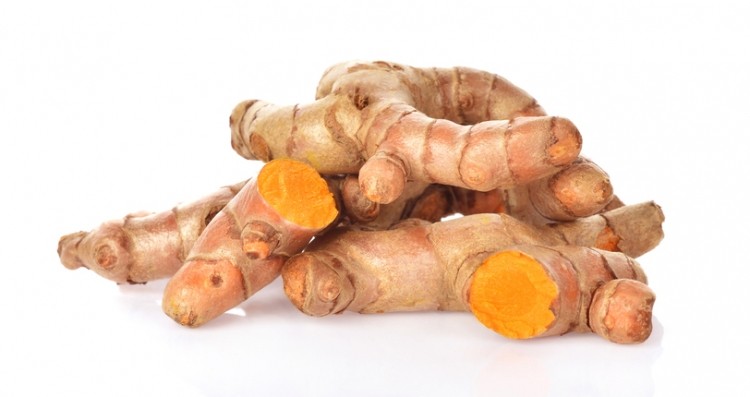Consumer Reports says it found quality problems in echinacea, turmeric supplements

The article, which headlines the December issue of the product testing organization’s magazine, detailed the results of tests of 16 echinacea products and 13 turmeric products. The organization said it was looking to see if the products met label claim in terms of their bioactive content and to see whether they were contaminated with lead or with microorganisms.
The products selected represented a range of major brands. The products are sold at major retailers including GNC, CVS, Walmart and Whole Foods Markets.
One third of products failed some aspect of tests
The products tested were all described as “pills.” The report found that that 17 of the 29 of the products met the testing criteria. The others were failed for lead content, bacterial amounts or too low levels of bioactives.
For the lead tests, Consumer Reports used a trigger level for lead content that it said was more stringent than that specified by the United States Pharmacopeia, though it did not provide further detail.
“CR’s scientists selected the testing methods and thresholds used in our evaluations based on their expert judgment. Our results are meant to help consumers compare their options and are not indicators of a product’s compliance with any given standard,” the organization said.
While all of the products met USP specifications for lead levels, the report said seven products had more than CR’s more stringent standard allows.
Two products were cited for too high levels of aerobic bacteria, using a USP standard (not E. coli or salmonella). One of those products was said to meet a bacterial standard set by the American Herbal Products Association. The manufacturer of the other product said that it has been experiencing counterfeiting problems and could not immediately verify that the bottle CR tested was in fact one of theirs.
For the bioactives testing, CR said it tested the levels of curcuminoids in the turmeric products and the levels of phenols in the echinacea products.
As with the lead testing, the organization did not specify the methods it used, nor in this case, did it provide more clarity on the particular compound it was looking for in the echinacea products.
In a 2011 paper, researchers from the British Columbia Institute of Technology and the National Institutes of Health validated a method to find caftaric acid, chlorogenic acid, cynarin, echinacoside, and cichoric acid in echinacea dry extracts, which presumably is the form of the herb found in the products tested by Consumer Reports. The researchers said the method had previously been used to test samples of incoming raw material.
In any case, the CR report said that, “One of the echinacea products we tested contained less than 20 percent of the phenol count listed on its label. And two other echinacea products didn’t contain any detectable amount of a key phenol associated with the echinacea species listed on the label.”
AHPA: Consumer Reports ignored expert input
Experts in the dietary supplement industry were quick to react to the report. Michael McGuffin, president of the American Herbal Products Association, was interviewed for the article and was quoted in the report. He said Consumer Reports chose not to use some of the information he provided.
AHPA said that McGuffin had explained that his organization’s standard for bacteria levels was not plucked out of a hat, but is in fact the same as that established in NSF/ANSI 173, the American National Standards Institute’s approved standard for dietary supplements.
The USP standard “is not the only way you can assure a product is good,” McGuffin was quoted in the report as saying.
“Consumer Reports provides important food safety information to consumers on issues such as potential pathogenic contamination of romaine lettuce and handling of raw chicken in home preparation. AHPA appreciates such guidance when it’s within CR’s area of expertise, but its apparent lack of understanding of supplement regulations combined with its unwillingness to consider experienced input to learn more about herbal product quality standards diminishes the value of its communication in this subject area,” AHPA said in a statement today.
The statement also responded to the issue of the purportedly understrength echinacea products, which AHPA called the “most serious” allegation, by saying: “AHPA notes that supplement companies are obligated to comply with FDA’s stringent labeling rules to ensure that what’s on the label is in the bottle, but are not required to meet arbitrary expectations for what CR thinks should be in the bottle. The reductionist focus by CR on one specific compound ignores that herbs are complex mixtures of numerous natural constituents and are often valued for more than a single such compound.”
CRN: wide margin of safety for supplements
The Council for Responsible Nutrition, which had also contacted by Consumer Reports, was also quick to react to the report.
“Legitimate, science-based testing standards are widely accepted and used by our industry—and others—to ensure safe and quality products come to market. Well-respected, independent certification bodies routinely evaluate both manufacturing practices and the contents of finished products to provide consumers with added assurance. The industry’s vast adherence to these standards is one of the many factors that has contributed to dietary supplements’ wide-margin of safety,” said Andrea Wong, PhD., senior vice president, scientific & regulatory affairs, CRN.
“As a scientist, I am disappointed that a consumer publication would disregard these best practices that responsible companies take seriously and essentially establish its own arbitrary standards that are neither grounded in science nor relevant to consumer safety,” she added.
Missing the point?
Steve Mister, president and CEO of CRN, said in his view Consumer Reports was missing the point. Rather than quibbling about things like what trigger level for heavy metals to use in a test, the organization could serve consumers better by helping to shine a light on a real issue: the presence in the market of adulterated products.
“If Consumer Reports’ intention is to expose threats and warn consumers, then the publication utterly failed. Today, consumers are actually at risk from adulterated products, and while this threat exists only at the fringes of the industry, it is one that can and must be eradicated,” said Steve Mister, president & CEO, Council for Responsible Nutrition (CRN).
Mister said in CRN’s view the best way to help clean up this fringe element is with a mandatory product listing, which is something the organization is lobbying for on Capitol Hill.
















